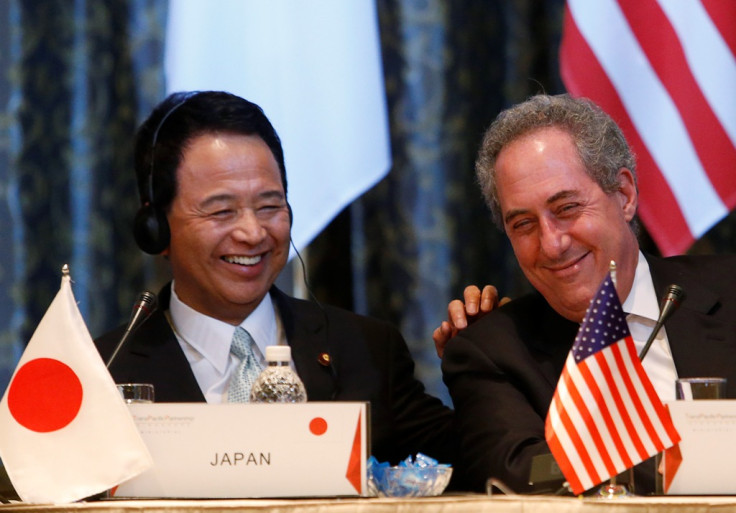Japan and US Begin Trade Talks Ahead of President Obama's Visit

Japan and the US have kicked off discussions aimed at signing a two-way trade pact, critical to the success of broader regional trade negotiations, ahead of US President Barack Obama's 24-25 April visit to Japan.
However, officials warned that overcoming differences will be difficult.
A deal between Tokyo and Washington, the two biggest economies discussing the Trans-Pacific Partnership (TPP) accord, is needed for the US to bolster its presence in Asia.
Japanese Prime Minister Shinzo Abe has publicised the TPP deal as a key part of his growth strategy.
However, the outlook for a Japan-US deal is dim with both sides accusing each other of being too rigid.
Japan's Economy Minister Akira Amari and US Trade Representative Michael Froman are expected to continue discussions on 10 April.
Working level discussions, which began this week, made little progress in bridging gaps, an unnamed Japanese government source told Reuters.
"I think we can say Japan and the United States are dominant among parties participating in TPP talks in terms of economy," Abe told Japanese television on 8 April.
"If Japan and the United States fail to reach an agreement, TPP could collapse ... The important thing is that it would be pointless if Japan and the United States remained unyielding and that happened."
Tokyo-Sydney Deal
Japan and Australia agreed on a basic trade pact on 7 April and the two nations said they would work towards signing it at the earliest possible.
Froman told US lawmakers last week that Japan's unwillingness to lower trade barriers was delaying agreement on the TPP.
The other countries involved in the TPP talks are Canada, Mexico, Chile, Peru, Australia, New Zealand, Brunei, Malaysia, Vietnam and Singapore.
Negotiations
Washington has been pushing Tokyo to do away with tariffs in the five categories of rice, beef and pork, dairy products, wheat and sugar. These include 586 product lines. Japanese media has said US pressure was particularly strong on the categories of beef and pork, and dairy products.
In return, Japan wants the US to set a timeline for abandoning import duties on vehicles -- 2.5% on imported cars and 25% on light trucks.
© Copyright IBTimes 2025. All rights reserved.






















